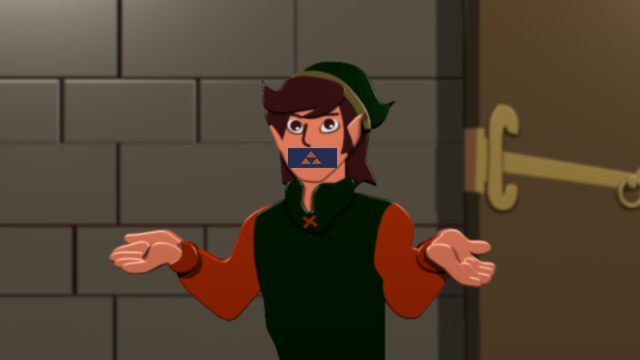
Voice acting– we either love it or hate it. Most of the time though, we seem to hate it, or at the very least are embarrassed by it. In fact these feelings are so great that there are entire websites devoted to cataloguing the worst offenders, and even face-actors (my personal favourite) who lip-sync these atrocities for our viewing pleasure. But no matter how much we cringe every time we hear the words “Jill sandwich” or “master of unlocking,” voice acting is very much here to stay. Nearly every major release this holiday season will feature a whole cacophony of voices, from the quick quips in Uncharted 3 to the roars of battle in Call of Duty: Modern Warfare 3— even Link’s grunts and exhausted gasps in Skyward Sword needed a voice actor. Yet while some games like L.A. Noire are leading the way in pioneering motion-capture and facial-recognition techniques to get the very best out of their voice actors and deliver life-like performances from its characters, others, namely Nintendo games, are still reluctant to unpurse their lips when it comes to pronouncing their first words. But is this necessarily a bad thing?
The silent protagonist has been around since the dawn of video games, albeit mostly because developers didn’t actually have the capability to produce that much sound back in the ‘70s and ‘80s. Although some of the earliest voice-acting was seen on the TurboGrafx and Phillips CDi (perhaps the sole reason why Link’s resolved to never speak again), the real boom came during the 32-bit era when PlayStation came, quite literally, kicking and screaming onto the scene in 1994. Its optical CD format meant that a game’s sound could not only be of higher quality than the previous generation’s synthesised chiptunes, but it could also play pre-recorded dialogue. That’s a rather simplified summary, but there’s no denying that the vast majority of voice-acting gaffes (at least according to Audio Atrocities.com) come from PlayStation and PlayStation 2. Since then though, the silent protagonist has become something of a rare breed– voice acting is now very much the norm, so much so that we’re even starting to remember the names of the actors.
So where does this leave our beloved cast of muted heroes? Will we ever see Link or Mario deliver rousing speeches or have proper, two-way conversations with the locals? If the reception of Samus in Metroid: Other M was anything to go by, it would seem not (but I’ll get to that later).
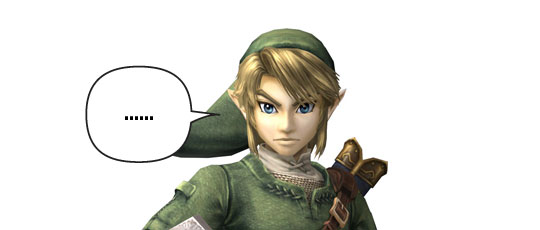
Link: tumbleweeds stalk him wherever he goes.
Of course, the main attraction of the silent protagonist is that they’re essentially a vessel for you, the player. As their reluctance to speak gives them a somewhat limited personality, you can embody the hero persona and enter into the adventure on a much more personal level. They become an “everyman” (or “everywoman”)– they could just as easily be you or me, and as they have no voice of their own, we’re free to give them ours. This is particularly effective when the game operates in first-person, and you only need to look at the revered following of the Half-Life series to know that Gordon Freeman is one of the most beloved characters in the history of video games.
But at the same time, a silent protagonist strikes an odd chord when they’re surrounded by characters who can speak, by text box or otherwise, and they require a much greater suspension of disbelief than voiced protagonists.
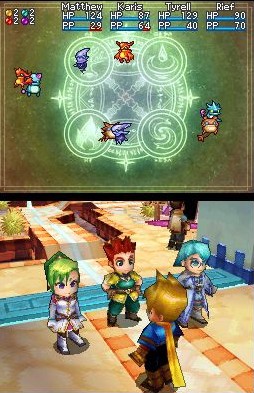 Let’s take the example of Golden Sun: Dark Dawn on DS. Throughout every dialogue sequence, Matthew, the main character, is resolutely silent. Instead of speaking up as the alleged leader of the group or taking charge of his own destiny, he lets his friends do the talking for him. They are the ones who have to negotiate and make decisions for him, and for a boy who goes on to save the world, speech shouldn’t really be his most difficult obstacle. Although he does get to occasionally paticipate in a conversation, it’s only by way of four emoticon-like responses, ranging from gleeful happiness to extreme anger, as if he can only communicate through the power of mime. It’s almost a little clownish, and I still don’t quite understand how such a general facial expression is meant to convey one’s opinion on whether you should enter a monster infested cave or not.
Let’s take the example of Golden Sun: Dark Dawn on DS. Throughout every dialogue sequence, Matthew, the main character, is resolutely silent. Instead of speaking up as the alleged leader of the group or taking charge of his own destiny, he lets his friends do the talking for him. They are the ones who have to negotiate and make decisions for him, and for a boy who goes on to save the world, speech shouldn’t really be his most difficult obstacle. Although he does get to occasionally paticipate in a conversation, it’s only by way of four emoticon-like responses, ranging from gleeful happiness to extreme anger, as if he can only communicate through the power of mime. It’s almost a little clownish, and I still don’t quite understand how such a general facial expression is meant to convey one’s opinion on whether you should enter a monster infested cave or not.
It’s all very well being a blank canvas for the player to embody, but when the game largely ignores you and only allows you a token participation in the ensuing events, silent protagonists begin to feel comparatively less interesting characters when they’re surrounded by their friends. You don’t really want to be Matthew because he has no opinion on anything, he can’t contribute to a conversation, and were he a real person he’d probably be the most vacuous and empty-headed person alive. It’s a miracle he has two best friends at all.
Likewise, the small efforts developers do make to give silent protagonists more of a personality often end up being rather meaningless. It doesn’t really matter which response Matthew gives because his companions will correct any inappropriate reaction and laugh it off as a kind of joke or comic mistake before resuming the conversation again.
Even solo silent protagonists encounter the same conundrum. Although Link is largely alone on his adventures through Hyrule, he still has to “speak” to NPCs and communicate with his companions, and his “dialogue” is nearly just as hollow. Without spoiling certain events in Skyward Sword, for example, Link is told on one occasion that he’ll never be a worthy hero because he’s always too late. Later on he has the chance to one-up this critic with the intentionally ironic speech option of “Am I late?”. I actually chose a different phrase at this particular juncture, but it was clear that either option wouldn’t really have had any lasting or meaningful effect beyond that conversation. Much like the Golden Sun scenario, the game ploughs on regardless of how you choose to react, and speech options like these are arguably nothing more clever illusions to give a little more depth to our tongue-tied heroes.
Had these moments been scripted on the other hand, either by text box or through voice acting, the protagonist’s response might have given us a much greater insight into their personality and made them much more rounded three-dimensional characters. Very little is achieved when we simply fill in the gaps with our own responses, and much like how we judge characters in films and novels, it’s only when we have something to react against like their dialogue that we’re really able to learn about them and ourselves. The voice is a powerful weapon, and while it’s often said that actions speak louder than words, it’s certainly one of the more important tools we use to decipher both the world and those around us.
But of course there’s nothing worse than having to play as a character we can’t stand, and it’s here where Metroid: Other M makes its entrance.
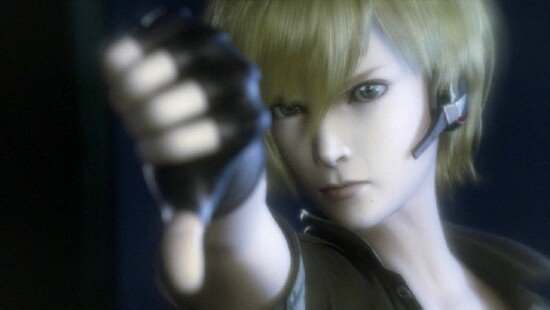
Even Samus disapproved of her voice actress.
Putting the game’s well-documented criticisms aside for a moment, try to imagine Other M without Samus’ voice. While I can almost hear the cheers and sighs of relief at such a thought, it also wouldn’t really work. Picture that scene when Samus saves Anthony from a monster and imagine her staring blankly at him while he speaks to her, refusing to say a word to this man we know to be her old friend. It wouldn’t make any sense, not unless we’re given some explanation about why she wasn’t speaking. As flat and emotionless as her dialogue might have been delivered, her voice was the crux of the entire game– it was a game about Samus coming to terms with her past, and what better way to communicate something like that to the player than from the protagonist themselves?
Now the way the game dealt with those experiences wasn’t exactly ideal or indeed successful, but I feel like they nevertheless needed to be told and described through her own words. A silent protagonist wouldn’t have worked here, not with that kind of story, and while we might hate how she was portrayed, I honestly think that giving her a voice was an inevitable part of her character progression.
But I wouldn’t say that silent protagonists should bow out of the race entirely. Just as there are some occasions where they don’t work, there are just as many where they do. I for one can’t see Amaterasu from Ōkami being anything but silent. Granted she’s also a wolf, but her simple gestures and mannerisms are all we need to know what she’s thinking, whether she’s pretending to take a nap during an important cut-scene or swatting Issun away with her paw. Her silent reactions are much more nuanced than Matthew’s exaggerated responses, and most importantly they don’t feel incongruous to the rest of the game.
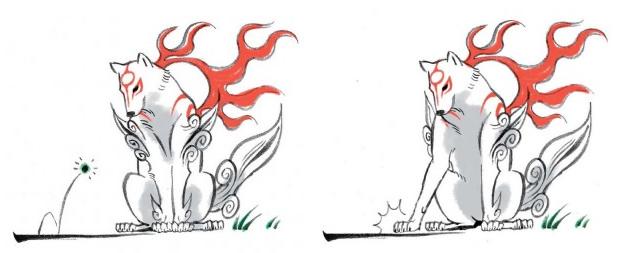
Likewise, while Link’s dialogue options are somewhat inconsequential, his vivid facial expressions in Skyward Sword speak far greater volumes about his character than words ever could, and giving him a voice would only cheapen the emotions we see so plainly written in his face. For instance, the way Link silently approaches a dungeon gives each one an unprecedented amount of weight and importance. Words aren’t needed to talk up the event or prepare us for what lies in wait because all this is accomplished by simply watching him brace himself and steel his gaze as he begins his descent. Moreover, even though other characters can speak via text box, their most illuminating moments also take place when they let their expressions do the talking, and one particular scene between Link and Zelda was just as, if not more, powerful as one of my all-time favourite voiced cut-scenes– the ending of Final Fantasy X.
Ultimately, then, I think there’s still room for silent protagonists as video games continue to move forward, but equally each protagonist camp still has a lot to learn from each other. Each must learn to walk a fine line between feeling believable within the context of the game and appearing out of touch with everything around them. But while silent protagonists may have a rough road ahead of them, I think that until developers crack the code of scripting the right words and finding the best voice actors to really capture the essence of their characters, speech really will be silver before silence’s gold.




 ShareThis
ShareThis






